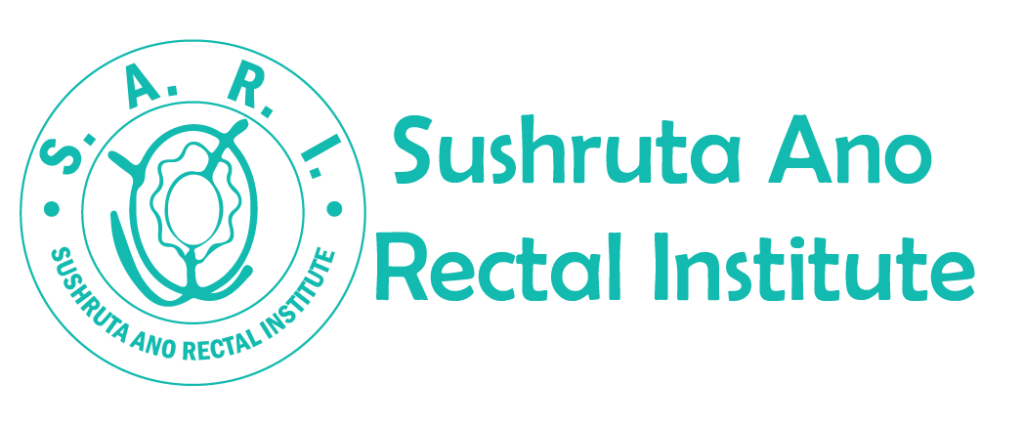Kshar-Sutra Treatment For Fistula: Procedure, and Recovery
- December 14, 2024
Fistula is a painful and often recurring medical condition that affects many people. It can cause discomfort, infection, and other complications if not treated properly. Thankfully, there are various treatment options available. One of the most effective and less invasive treatments is the Kshar-sutra treatment. This ancient Ayurvedic technique has gained popularity for its effectiveness in treating fistulas with minimal complications.
In this blog, we will discuss Kshar-sutra treatment for fistula, including its procedure and recovery time. We will also delve into why Ayurvedic treatment for fistula is considered a preferred option for many patients.
What is Kshar-sutra Treatment?
Kshar-Sutra treatment is an Ayurvedic technique that uses a special medicated thread to treat fistulas. This thread is coated with herbal extracts and alkaline substances that have both cutting and healing properties. The Kshar-Sutra procedure involves inserting this thread into the fistula tract, where it gradually cuts and heals the fistula over time. This method is considered a safer, cost-effective, and less invasive option compared to traditional surgery.
Benefits of Kshar-sutra Treatment for Fistula
- Minimal Invasiveness : Unlike conventional surgery, the Kshar-Sutra procedure is less invasive, which reduces the risk of complications and ensures faster healing.
- Lower Recurrence Rate : The alkaline and medicinal coating on the thread helps destroy infection-causing bacteria, which reduces the chances of recurrence.
- No Hospitalization Required : The procedure can be performed on an outpatient basis, eliminating the need for prolonged hospital stays.
- Natural Healing : Since Kshar-sutra therapy uses natural herbal ingredients, it promotes healing without adverse side effects.
- Faster Recovery : Patients who undergo Kshar-Sutra treatment for fistula often experience faster healing compared to traditional surgical methods.
How Does the Ksharsutra Procedure Work?
The Ksharsutra procedure is a time-tested Ayurvedic technique used for treating fistulas, piles, and other anorectal conditions. Here’s a step-by-step breakdown of how this procedure is performed:
1. Preparation
Before the procedure, the patient undergoes a thorough evaluation to determine the extent of the fistula. Local anesthesia is usually administered to minimize discomfort during the procedure.
2. Insertion of Ksharsutra
The medicated Kshar-sutra thread is then inserted into the fistula tract using a probe. The thread remains in the fistula tract for several weeks. During this time, the thread works by releasing the medicinal substances that help cut through the fistula and heal the surrounding tissues.
3. Gradual Healing
The thread is changed periodically (usually once a week) to ensure continuous healing. The medicinal coating of the thread helps reduce infection, prevents the formation of new abscesses, and promotes the drainage of pus.
4. Complete Healing
The entire Ksharsutra therapy may take anywhere from 4 to 8 weeks, depending on the severity of the fistula. Once the tract is completely healed, the thread falls off naturally, or it is removed by the practitioner.
5. Follow-Up Care
Post-procedure care includes maintaining hygiene, taking prescribed Ayurvedic medications, and following a balanced diet to promote healing and prevent recurrence.
Recovery Time for Kshar-sutra Treatment
The fistula healing time after undergoing Kshar-sutra treatment is generally shorter than traditional surgical procedures. Most patients can resume their normal activities within a few days, although complete healing may take 4 to 8 weeks. The healing time varies based on factors like the size and complexity of the fistula and the patient’s overall health.
Tips for Faster Recovery:
- Maintain Hygiene: Keep the affected area clean and dry to prevent infections.
- Follow Dietary Recommendations: A balanced diet rich in fiber can help prevent constipation, reducing strain on the affected area.
- Regular Follow-Ups: Attend all scheduled follow-up appointments with your Ayurvedic practitioner to monitor progress.
- Avoid Strenuous Activities: During the healing period, avoid heavy lifting and intense physical activities to promote faster recovery.
Why Choose Sushruta Anorectal Institute for Fistula Treatment?
Sushruta Anorectal Institute stands out as a leading center for effective and specialized fistula treatment. Here’s why patients trust us for their care:
Expertise in Anorectal Disorders : Our team comprises highly experienced Doctors who specialize in diagnosing and treating anorectal conditions, including complex fistulas.
Advanced Treatment Techniques : We utilize state-of-the-art methods like Kshar Sutra therapy and advanced Non-surgical options tailored to each patient’s condition for optimal outcomes.
Personalized Care : We believe every patient is unique. Our treatment plans are customized to address individual needs, ensuring comfort and swift recovery.
Minimally Invasive Procedures : Our approach emphasizes minimally invasive techniques that reduce pain, minimize complications, and enable faster healing.
Comprehensive Post-Treatment Support : From pre-treatment guidance to post-treatment follow-ups, our team ensures a seamless and supportive patient experience.
Proven Track Record of Success : With a high success rate and numerous satisfied patients, we have built a reputation for delivering reliable and effective fistula treatments.
Conclusion
Kshar-Sutra treatment for fistula is an effective, non-surgical option that offers numerous benefits, including lower recurrence rates, faster healing, and minimal side effects. The Kshar-Sutra procedure is cost-effective and has been a trusted Ayurvedic method for centuries. Whether you are looking for a natural treatment or trying to avoid the risks associated with surgery, Kshar-Sutra therapy is worth considering.
If you are suffering from a fistula and seeking a reliable and affordable treatment, consult an experienced Ayurvedic practitioner to explore your options. For those in the Delhi-NCR region, Dr. S.K. Singh at Sushruta Anorectal Institute, recognized as one of the best fistula doctors in Delhi, is highly recommended. His expertise in Kshar-Sutra therapy makes him a top fistula specialist doctor in Delhi as well. With the right guidance and treatment, you can achieve a smooth recovery and lead a healthy, pain-free life.
By understanding the fistula treatment procedure, and recovery time, you can make an informed decision that aligns with your health needs and financial considerations.
Read More: Graded kshar-Sutra unveiled The Modern Solution For Hemorrhoids
